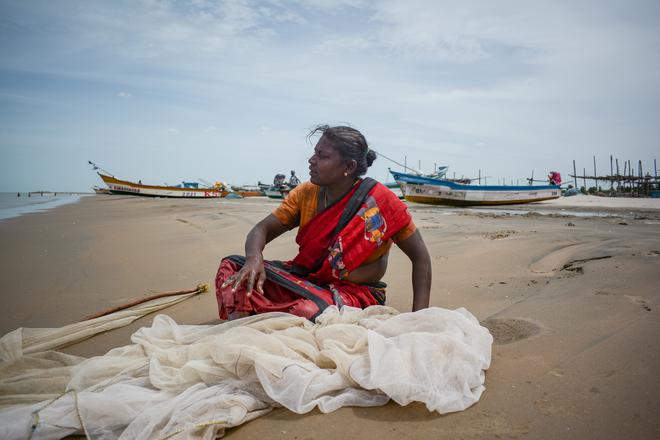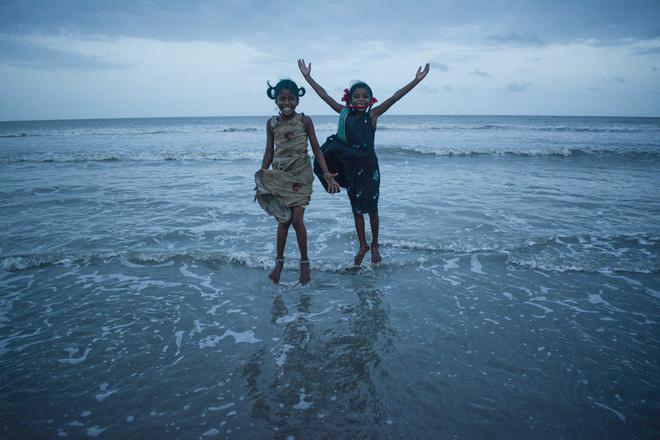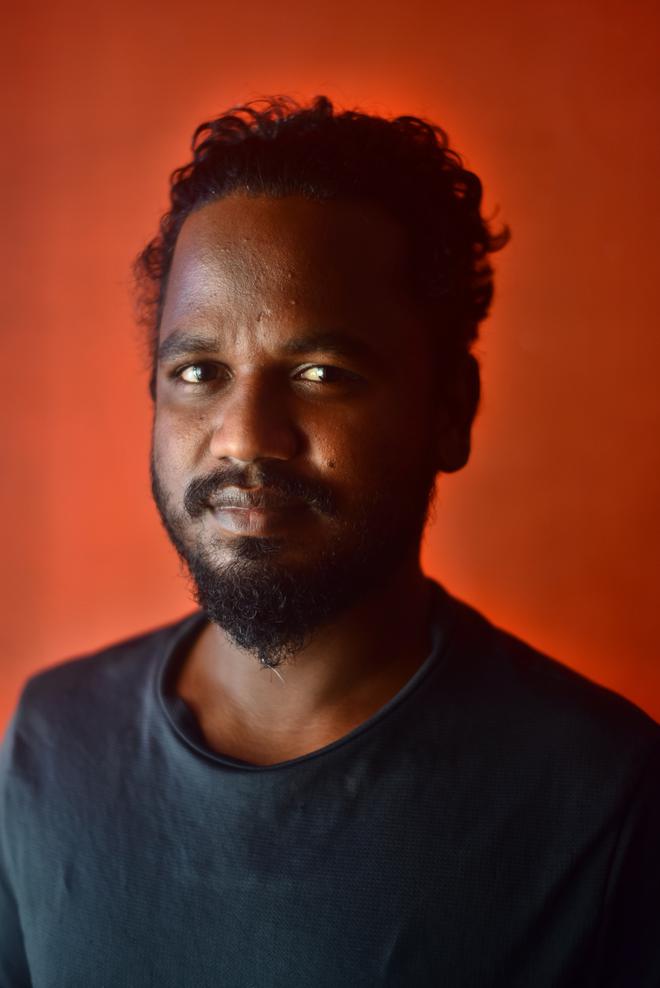Fisherwoman P Poonkodi will never forget the looks she got from people in her village when they first saw her with a DSLR camera.
“I felt uncomfortable,” recalls the 34-year-old, who is from Seruthur in Nagapattinam. “They asked lots of intrusive questions, but I eventually learned to ignore them,” she adds.
Poonkodi is among the 13 women photographers M Palanikumar trained as part of a three-month workshop organised by the NGO Dakshin Foundation. The first thing he told the fisherwomen when he handed them DSLR cameras was to simply feel the equipment. “It was important that they felt they could handle the camera,” says the Chennai-based independent photographer.

In February last year, boys and girls from North Chennai, whom Palanikumar trained, displayed their photos at an exhibition titled REFRAMED in the city. The exhibition that was the result of a six-month long workshop, paved the way for a similar workshop with the fisherwomen of Nagapattinam in Tamil Nadu, and Ganjam in Odisha.

“Dakshin Foundation, a non-profit organisation reached out to me with the idea,” says the 32-year-old, who contributes to People’s Archive of Rural India (PARI). What followed was a week-long session at Nagapattinam, followed by another one at Ganjam.
“We first met at the seaside on a particularly hot day,” Palanikumar recalls, adding that the idea was to train the women in their own environment. In Nagapattinam, he trained seven women: A Mahalakshmi, M Lakshmi, P Poonkodi, V Manjamatha, M Suganthi, S Bharathi and Parimala from fishing hamlets such as Keechankuppam and Pazhayar. They worked with DSLR cameras that Palanikumar bought with his own funds, and with contributions from friends.
Palanikumar does not believe in rigorous, structured training when it comes to photography. “When one holds the camera, the device automatically turns political,” he feels. “Apart from documenting what we see around us, we eventually tend to train the lenses on our problems.” This was the case with the fisherwomen as well. “They were chosen from the community for the workshop based on their eagerness to learn and use the camera as a political tool,” he adds.

It took some time for the women to get used to the camera. “For them, to be trusted with a camera was huge,” says Palanikumar, adding that this boosted their confidence. “They then set out to tell their own stories. in their own way,” he says. After the initial training, the women shot photos, with Palanikumar assisting them on and off from Chennai, offering feedback on their photos that they shared on a WhatsApp group he created. From the migration of fisherfolk to other States for fishing, to coastal erosion, the women covered themes they grew up watching.
Palanikumar is in the process of putting the photos together as an exhibition in Chennai early next year.
Poonkodi shoots with interest, and is working on a series on Kuppusamy, a senior fisherman from her village. “He was shot by the Sri Lankan Navy in 1990, and has been bed-ridden ever since,” she says. “He manages to do little things such as shaving and cleaning his surroundings himself, and I’m documenting his everyday life.” Poonkodi continues to take photos, and is focussing on the lives of fisherwomen such as herself. “Women play a crucial role is fishing, despite not stepping into the water,” she explains.
Poonkodi says the most important lesson she learned from Palanikumar is to talk to people before taking a picture of them. “They deserve to know why we are shooting them,” she says. “I also learned that photography is not just about taking photos of beautiful things. It is more important when it conveys a feeling.”







